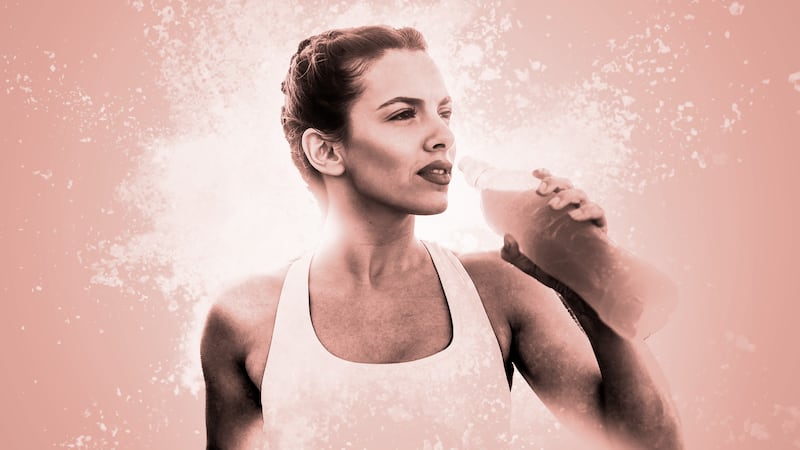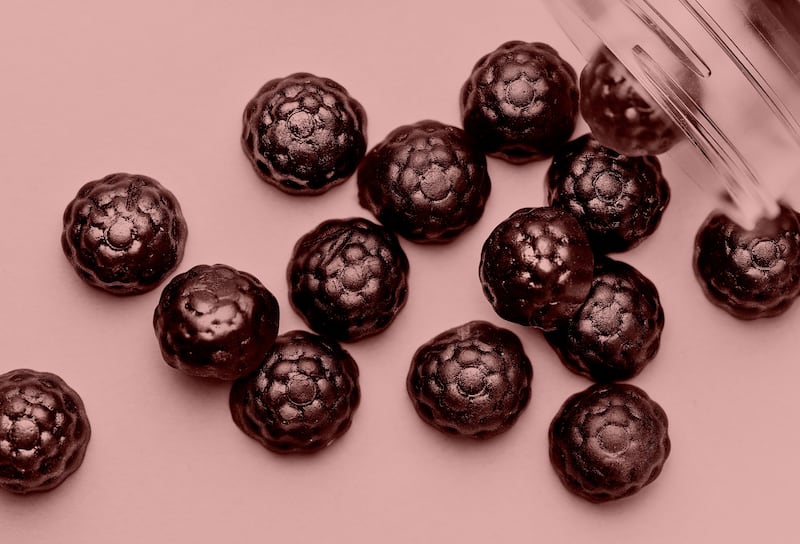Why Almost Everyone Should Be Taking Creatine Supplements
Even if you aren’t the supplement type, creatine is worth serious consideration, no matter your age. Long the darling of bodybuilders and athletes because it directly supports explosive, high-intensity exercise, creatine is actually one of the most researched supplements on the planet.
While most of the early studies focused on its impact on strength and muscle growth, “we now know creatine supports way more than just bigger biceps,” Darren Candow, a physiologist and scientific advisor at Create Wellness, told the Daily Beast in an interview, highlighting its benefits to brain health, bone health, and cardiovascular health in men and women—the kind of stuff that matters whether you’re 25, 45, or 75. “It’s becoming clear creatine is for everyone who wants to feel and perform their best.”
 “Creatine has been shown to support bone density, protect against age-related muscle loss, and promote cognitive health,” says Darren Candow. The Daily Beast/Getty Images
What is creatine?
“Creatine has been shown to support bone density, protect against age-related muscle loss, and promote cognitive health,” says Darren Candow. The Daily Beast/Getty Images
What is creatine?
Creatine is a naturally occurring compound produced mainly in the liver and kidneys (about one to two grams a day), and most of it is stored as phosphocreatine in our muscles.
When you’re working hard, like sprinting or lifting, your muscles use ATP (adenosine triphosphate), which is the body’s main energy source. Your body produces its own body weight in ATP every day just to keep things running. However, it’s not stored in the body in large amounts, and we blow through it pretty quickly—mere seconds when you’re physically exerting yourself. To create more ATP, we use phosphocreatine. That gives us the energy to keep pushing, which is why it’s so beneficial to have a lot of creatine on hand.
And yes, this matters even if you fall squarely into the couch potato camp—it’s not just muscles that rely on creatine. The brain alone requires significant amounts of energy to think, focus, and remember, and it taps creatine to help fuel itself just like our muscles do.
What are the benefits of creatine?As a supplement, creatine is incredibly versatile. There’s the energy production thing, “which means everything from clearer focus and less brain fog to better stamina and faster recovery in daily life,” explained Candow. But the long-term benefits may be even more exciting. “Creatine has been shown to support bone density, protect against age-related muscle loss, and promote cognitive health,” he said, adding that emerging research even points to potential neuroprotective effects in conditions like Alzheimer’s. That makes creatine less of a “muscle supplement” and more of a foundational nutrient for lifelong strength and brain health.
So, who stands to gain the most? According to Luis Cifuentes, director of research and development at Wonderfeel Biosciences, it’s not just athletes. He points to five populations to specifically benefit from creatine supplements: perimenopausal and postmenopausal women; men and women over the age of 50; vegetarians and vegans; people with high stress levels; and people who report low energy levels.
In the first group, creatine helps ward off the muscle and bone loss associated with lower estrogen levels. Plus, it’s a lifesaver for mood and cognition as hormones fluctuate. For seniors, creatine helps slow age-related muscle decline, which preserves mobility and independence alike, along with the bonus cognitive benefits. “Creatine supplementation enhances memory, reaction time, and processing speed after just a single dose,” said Jenna Stangland, a registered dietician and advisor at Momentous, a human performance and nutrition company. “It also supports recovery, neurological function, and can increase brain creatine levels by 6%. This makes it valuable for cognitive health and potentially protective against age-related decline, benefits that extend far beyond the gym.”
These benefits also directly support individuals who are stressed and have low energy. Chronic stress is exhausting and horrendous for healthy brain function. By assisting in ATP production, creatine supplements help reduce fatigue, burnout, and sleep problems—doesn’t that sound nice? Plus, “beyond muscle performance, creatine supports overall energy metabolism and faster recovery from mental and physical fatigue,” Stangland noted. “The energy benefits translate to better performance in everyday activities, not just workouts.”
While the body naturally produces creatine, it’s also found in small amounts in animal-based foods. That’s why vegans and vegetarians usually have lower baseline creatine levels, which can mean less energy for the muscles and brain. Fortunately, creatine supplementation helps close that gap—and creatine monohydrate, the most common, most studied form of synthetic creatine, is vegan-friendly.
 Gummies are a common format for creatine supplements. The Daily Beast/Getty Images
So, is creatine safe and well-tolerated?
Gummies are a common format for creatine supplements. The Daily Beast/Getty Images
So, is creatine safe and well-tolerated?
Definitely! According to Candow, the overwhelming consensus is that it’s safe for adults to use long-term. Those with specific medical conditions should get their doctor’s blessing, of course.
And don’t be swayed by persistent but flat-out inaccurate claims—Cifuentes says that creatine is not a steroid or a hormone, and it doesn’t trigger “bulking” in women. “The main side effect is temporary water weight gain during the first few days as muscles store more water,” explained Stangland. This is due to cell volumization, which happens when you start increasing creatine levels—your muscles pull in extra water to maintain the right balance with other cellular compounds. Strangland adds that it normalizes quickly and isn’t permanent. Once your creatine stores stabilize, so does fluid balance. For most people, Candow said the side effects are minimal to none.
How to safely supplement creatineFor all its benefits, the beauty of a great creatine supplement is that it’s so easy to incorporate. All of the experts who spoke with the Daily Beast recommend a daily dose of 3 to 5 grams. Even if you’re a voracious carnivore, you’d have to eat a ton of red meat or fish to reach that level, so supplementation really is the only practical solution. Just remember that consistency is more important than timing, said Cifuentes, so make it part of your daily routine.
Finally, be mindful that there are a lot of crappy creatine products out there. One testing program found that of 11 popular creatine brands (powders and gummies alike), four actually contained no creatine at all. The lesson: read the label carefully—ideally, all you should see is creatine monohydrate, though there will be other ingredients if you opt for gummies. Third-party testing is also a must.
The bottom line is that creatine isn’t just for athletes. It’s one of the safest, most effective, most versatile supplements for supporting energy, strength, and brain health. And who doesn’t want that?
The post Why Almost Everyone Should Be Taking Creatine Supplements appeared first on The Daily Beast.